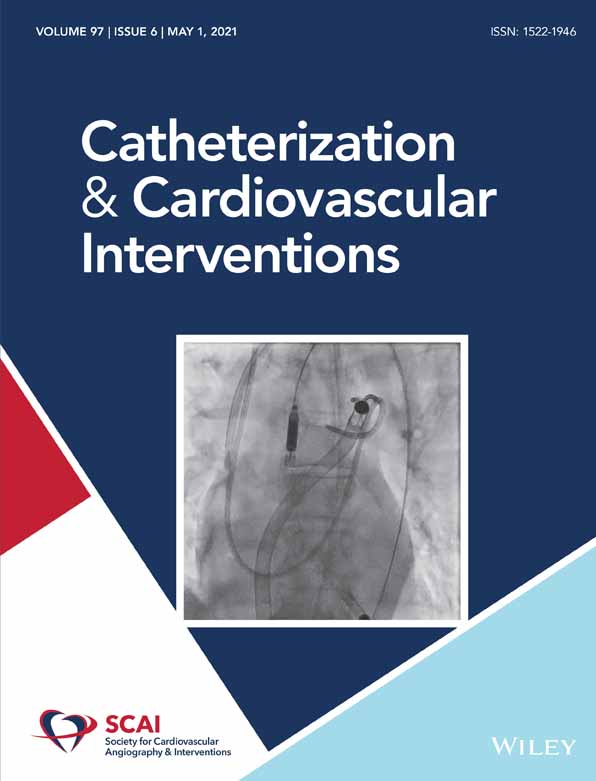Unmasking right ventricular failure in cardiogenic shock: The importance of serial hemodynamics
Abstract
A 65-year-old female was transferred with myocardial infarction, three-vessel coronary artery disease, cardiogenic shock and an intraaortic balloon pump. Given persistent shock, mechanical circulatory support (MCS) was upgraded using a left ventricular hemodynamic support device (Impella CP). The patient was monitored in the catheterization laboratory and serial hemodynamic measures were obtained. Initial hemodynamics showed relative improvement; however, serial assessments demonstrated worsening hemodynamics secondary to right ventricular failure, ultimately requiring a right ventricular hemodynamic support device. The case highlights the rapid changes that can occur with mechanical circulatory support devices and demonstrates the importance of obtaining serial hemodynamics in the cardiac catheterization laboratory.
CONFLICT OF INTEREST
Dr. Basir has the following disclosures: Abbott Vascular, Abiomed, Chiesi, Cardiovascular Systems, and Zoll. Dr O'Neill has the following disclosures: Abiomed and Abbott. The rest of the authors have nothing to disclose.
Open Research
DATA AVAILABILITY STATEMENT
Data sharing not applicable to this article as no datasets were generated or analyzed during the current study.




